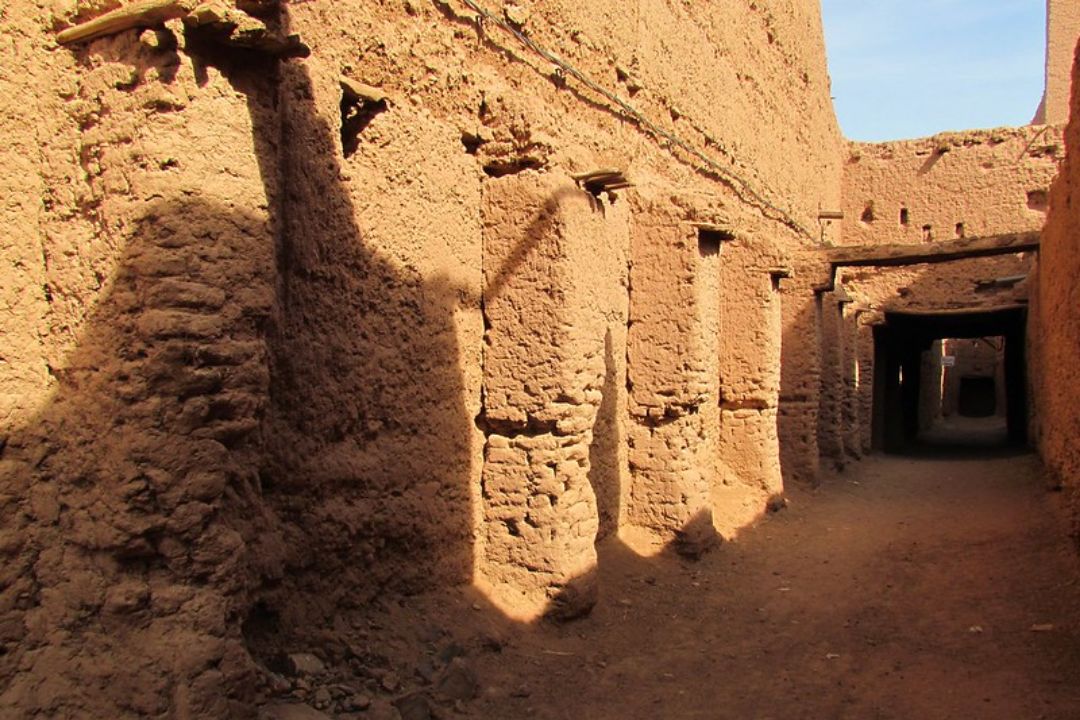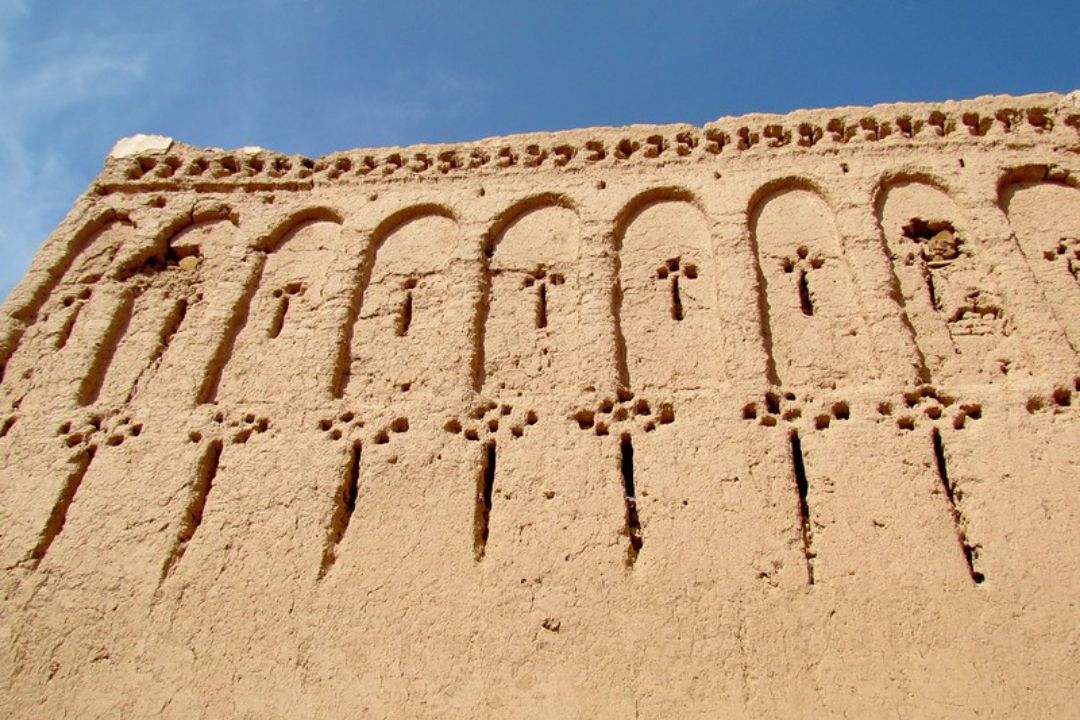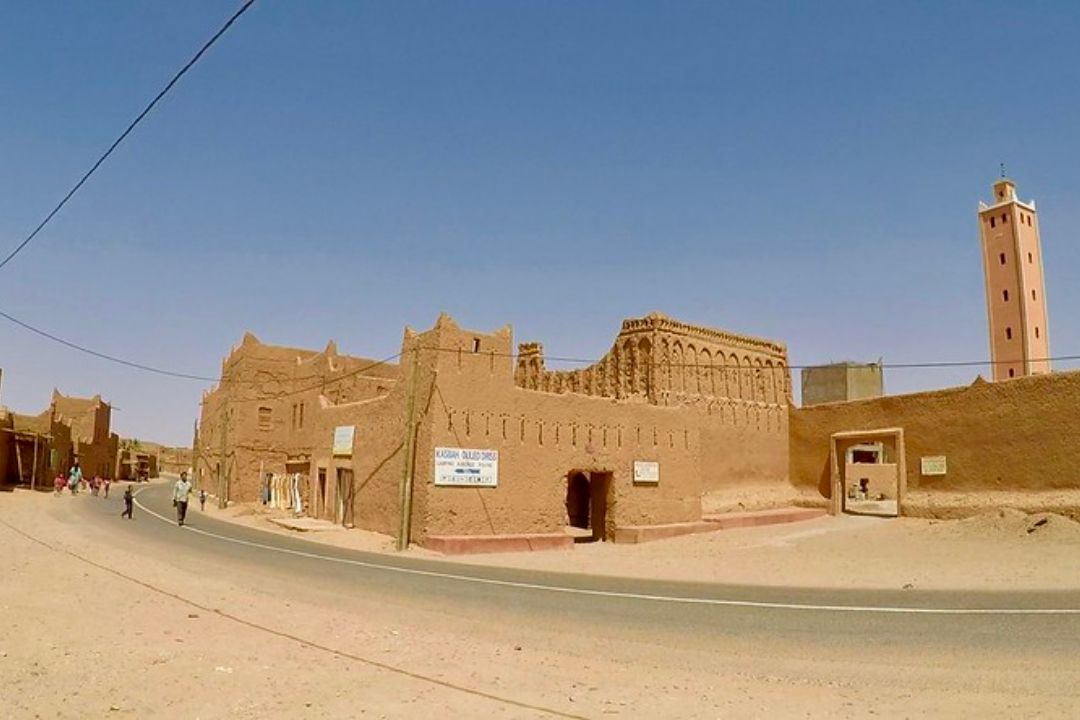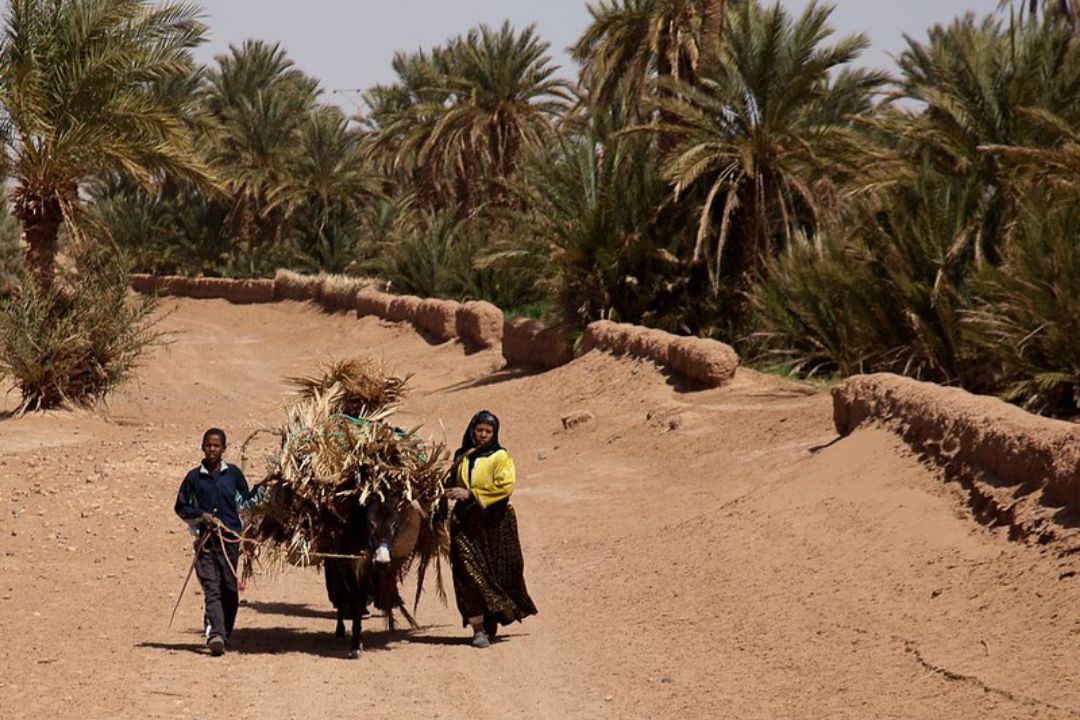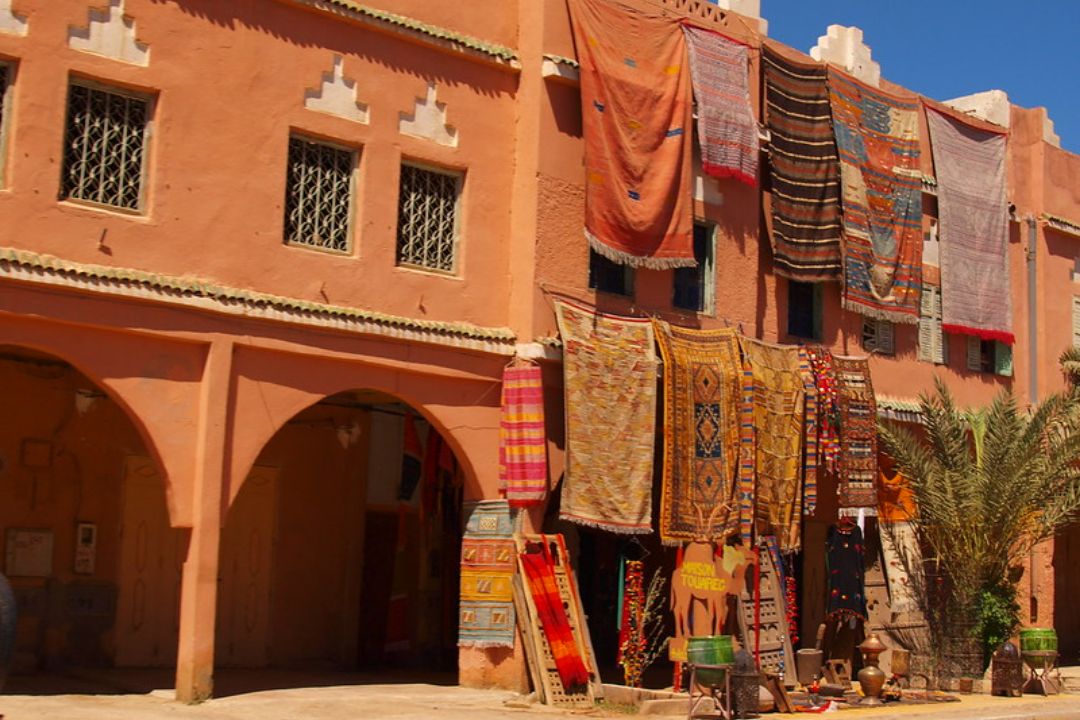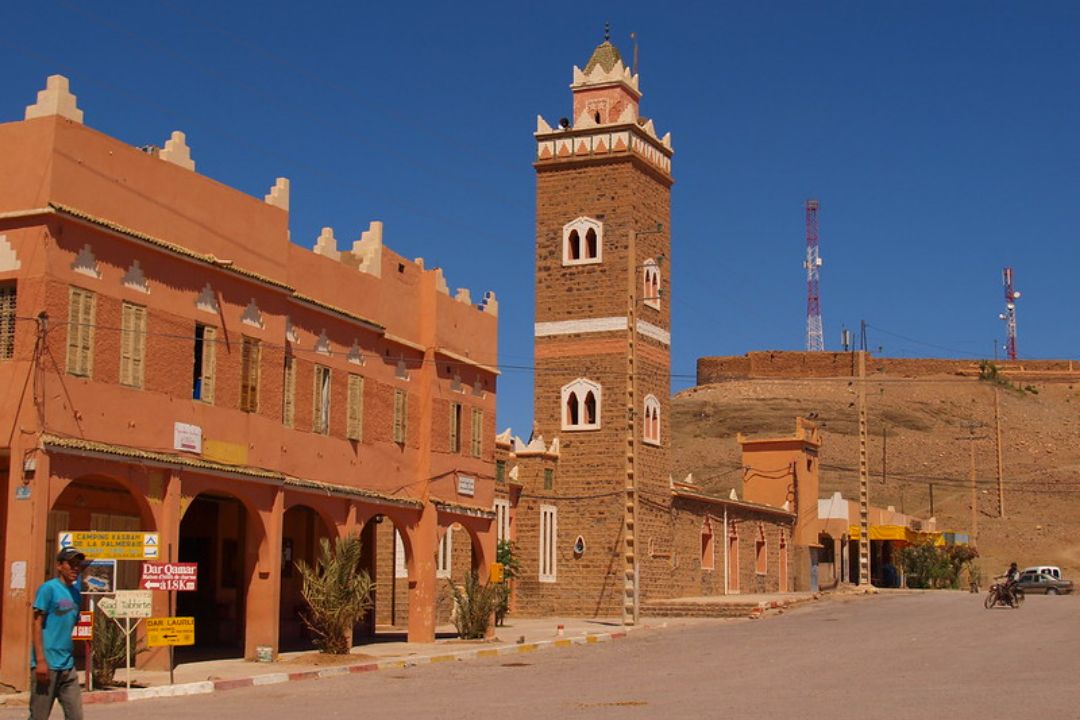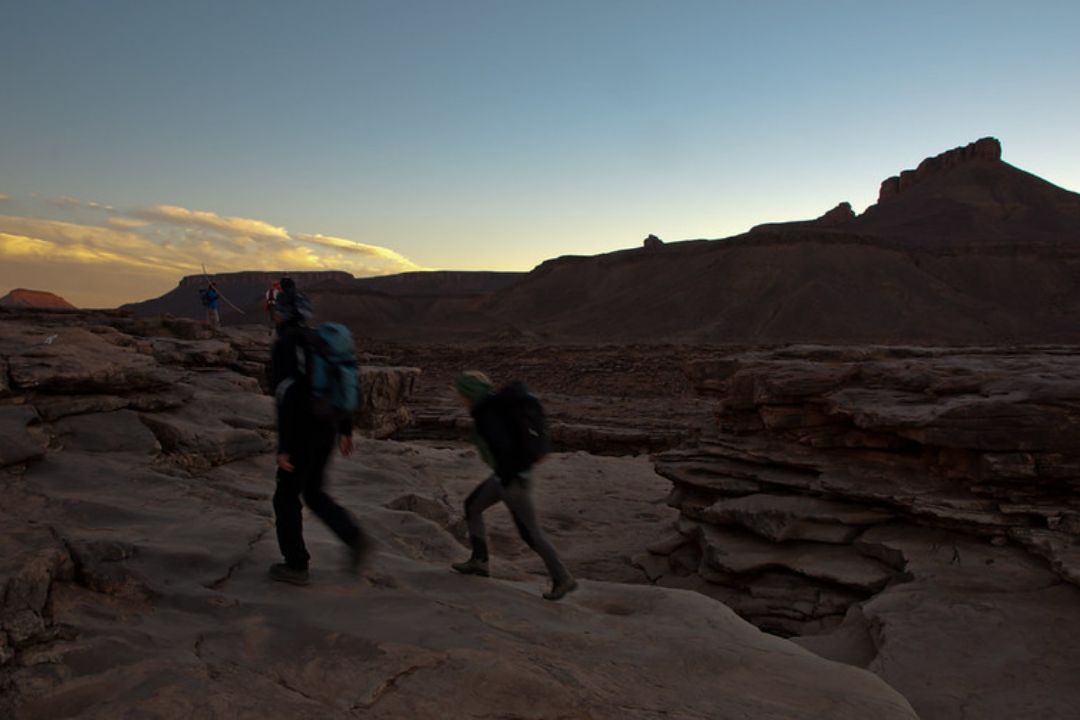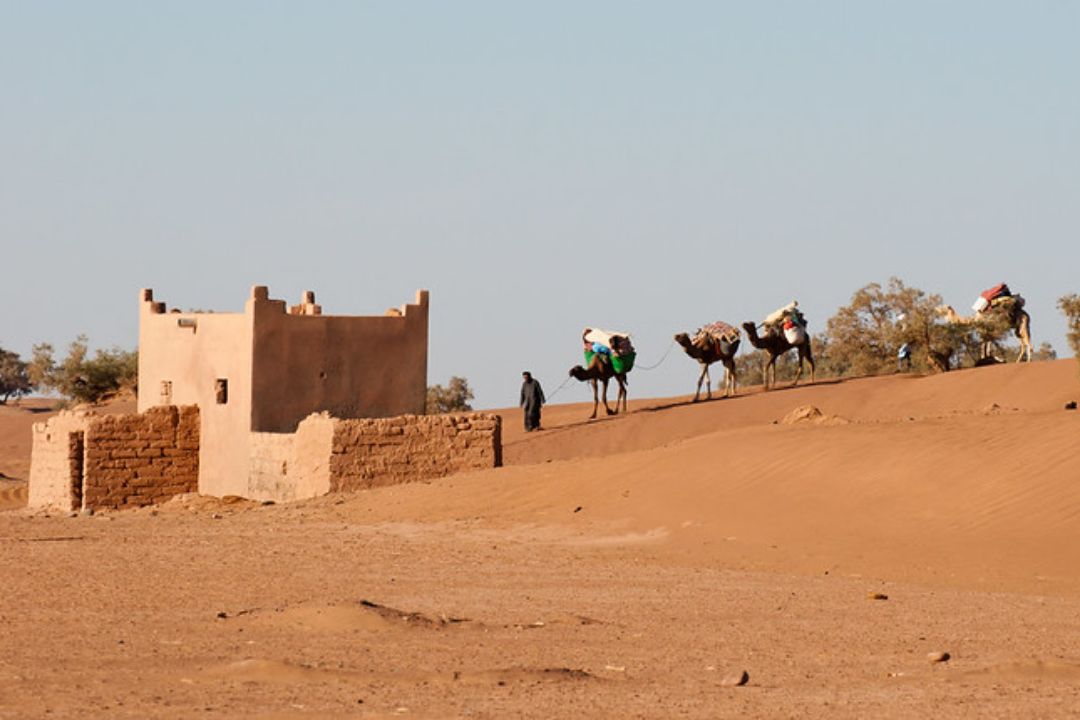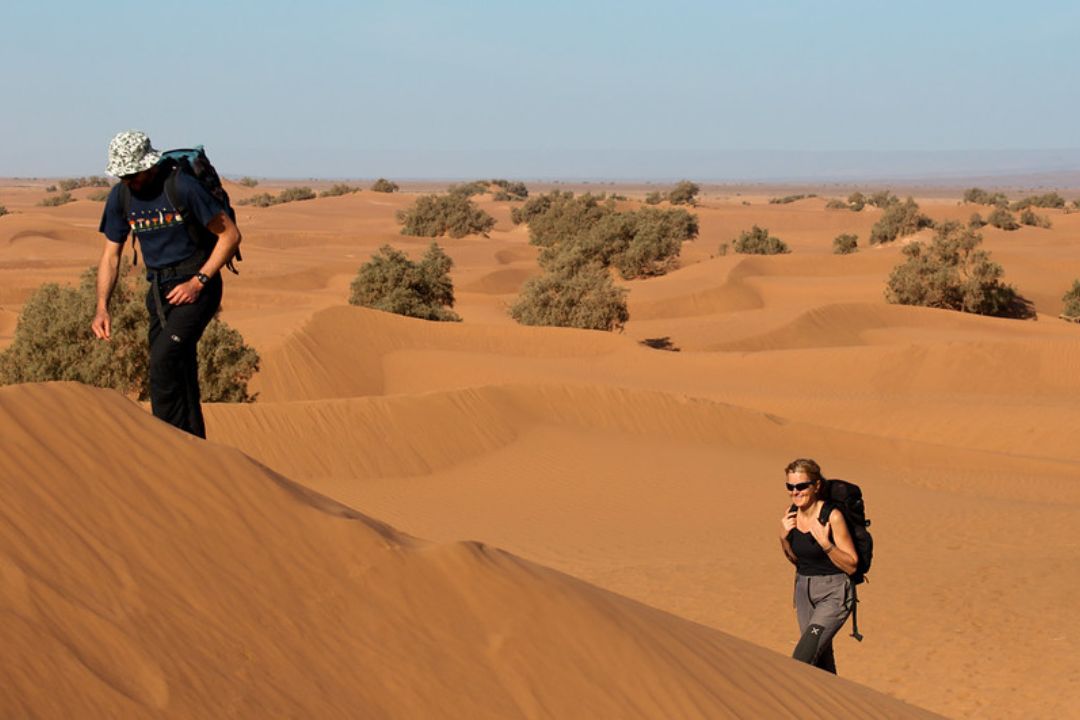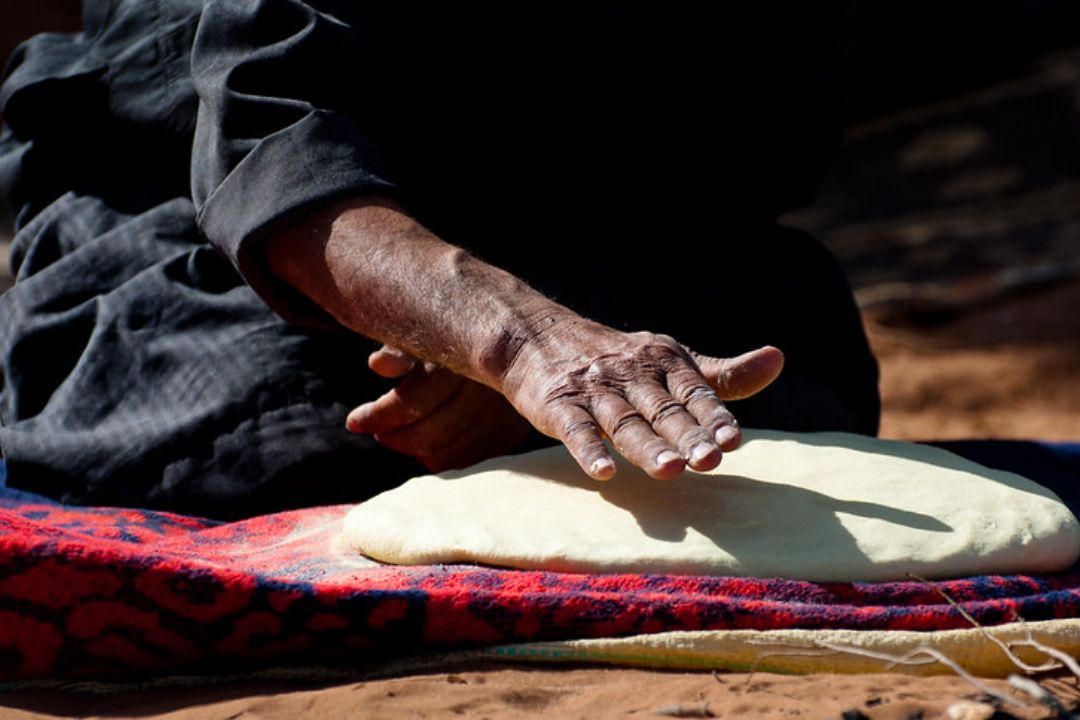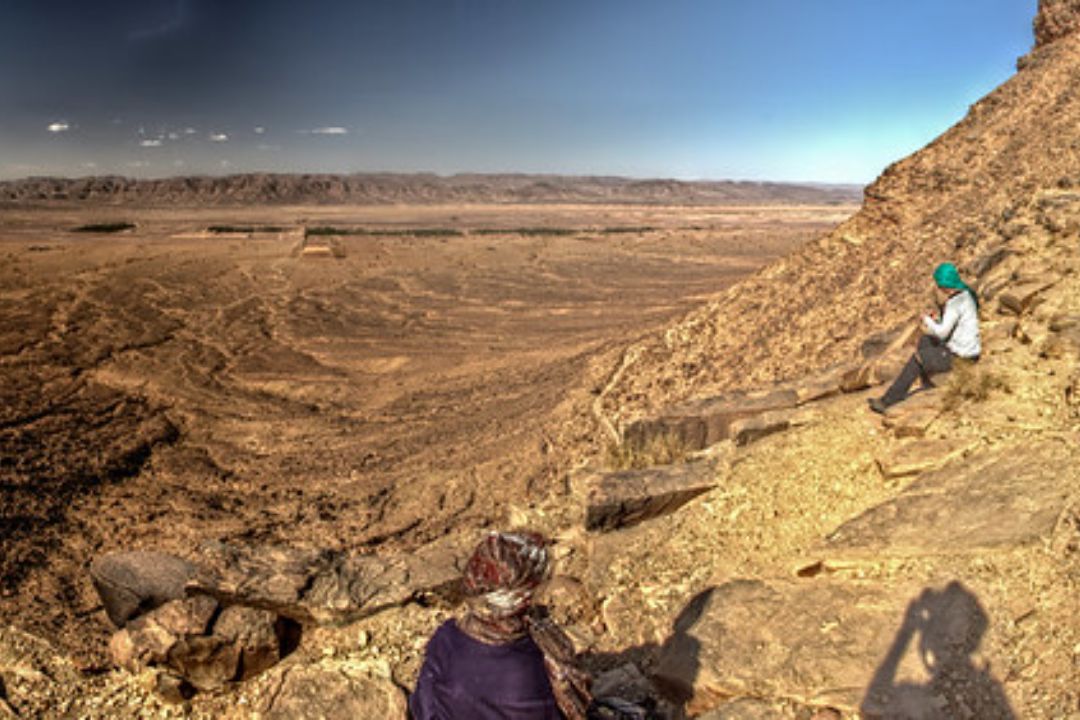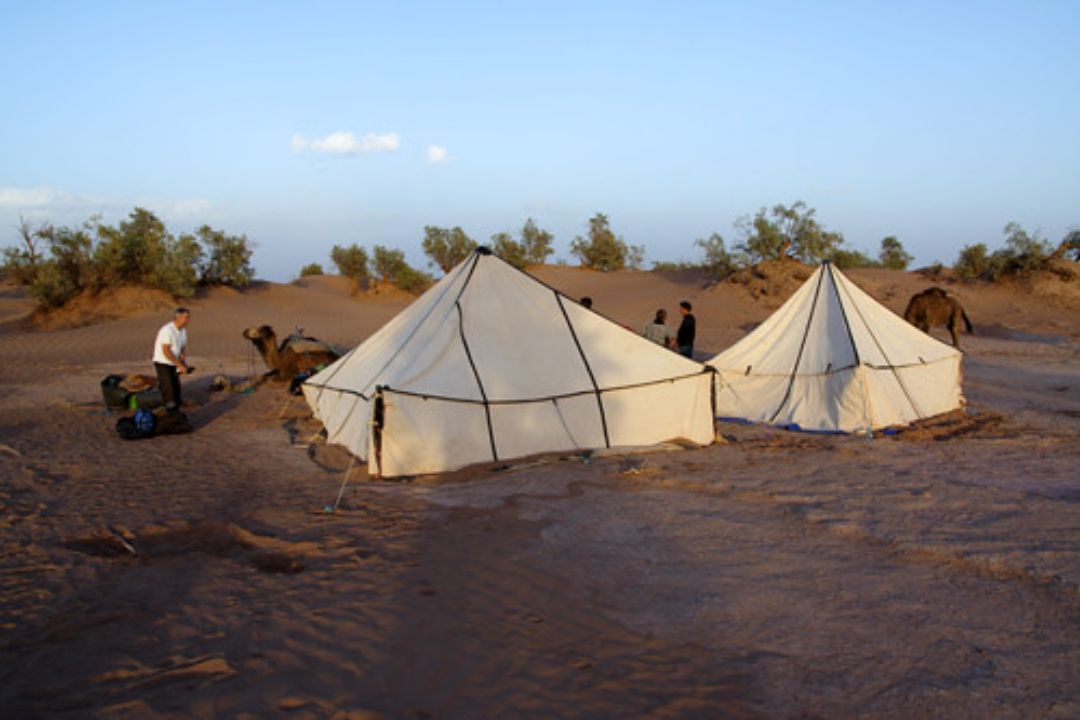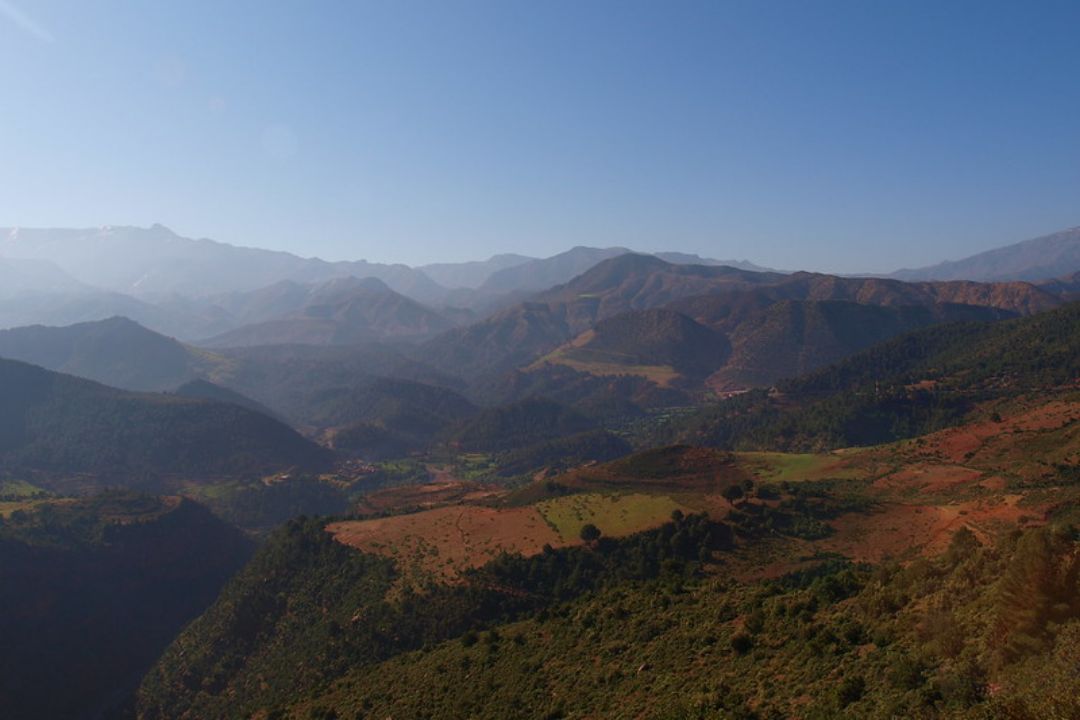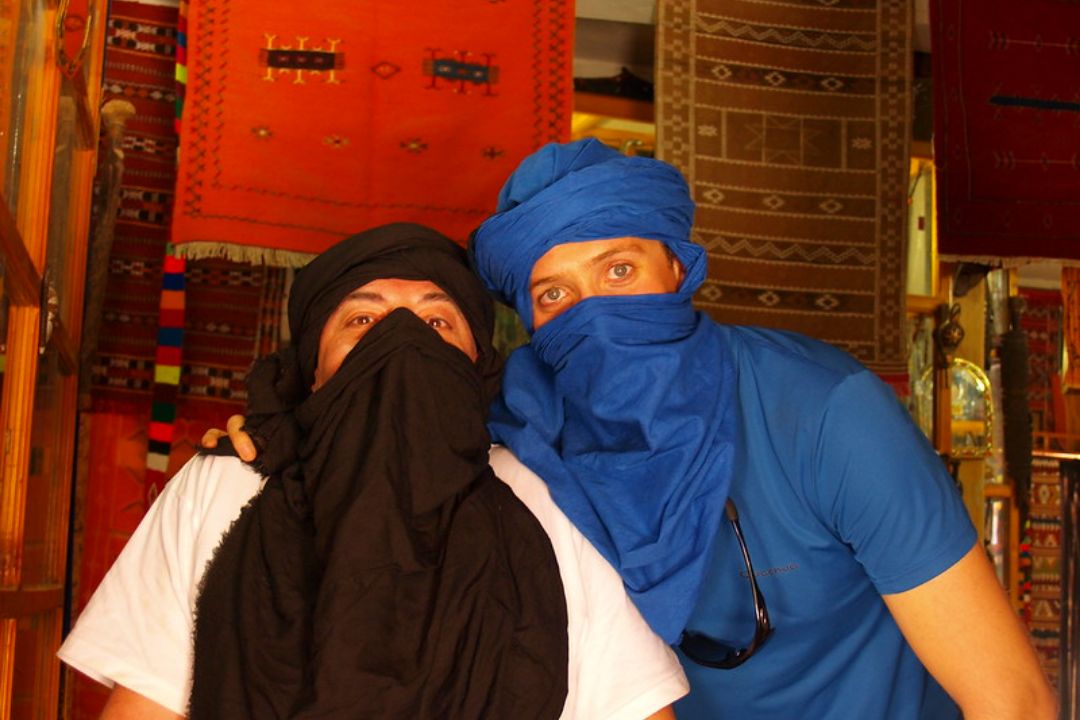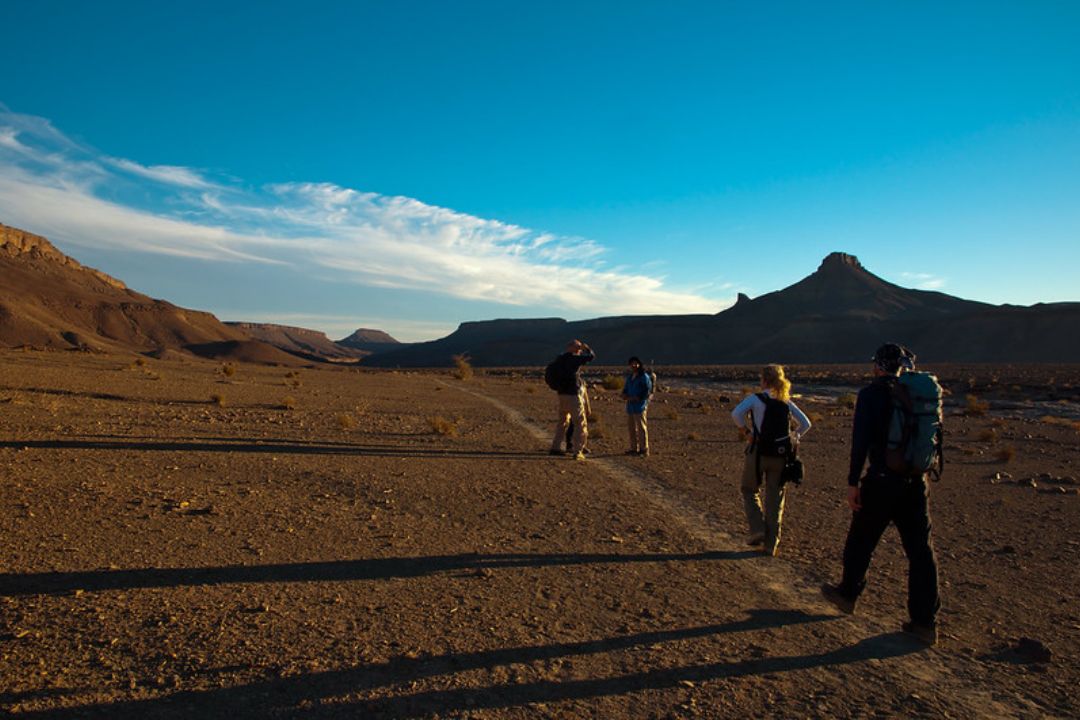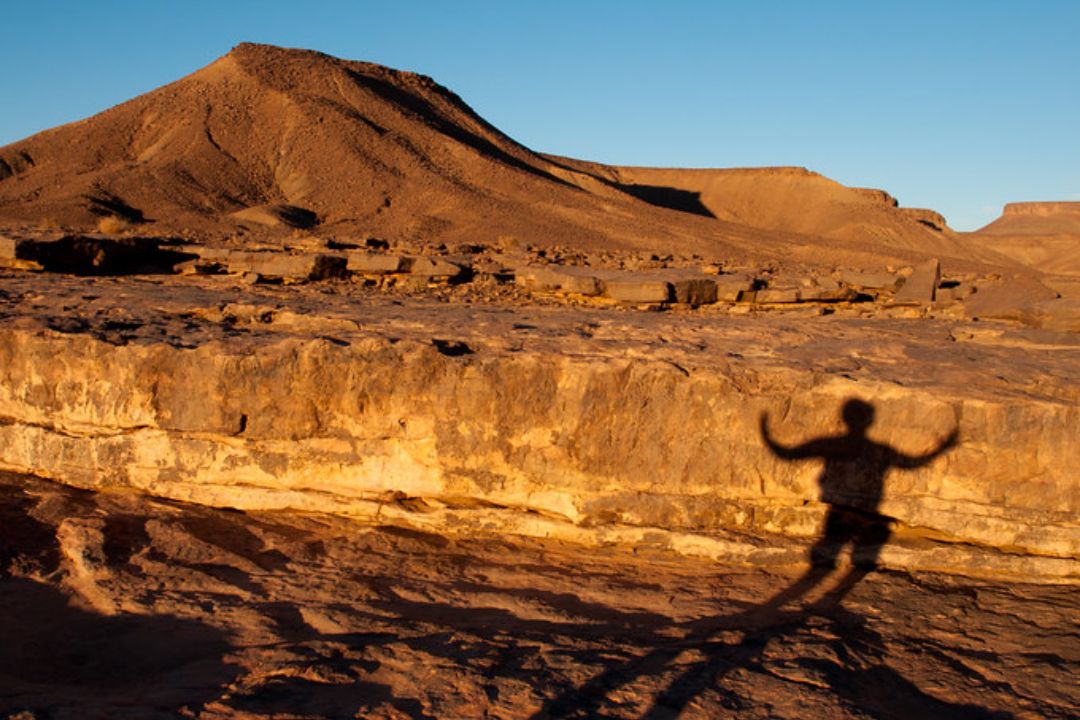From the Ridges of Faija to the Dunes of Chegaga – 8 Days
Duration: 8 Days
2 Person Minimum
Overview
The desert is best known for its magnificent sand dunes. If you dream of a trek in southern Morocco, you will be amazed by the unusual landscapes around you, such as golden dunes, others dotted with tamaris trees, imposing bare peaks softened by lush vegetation. Caravans of camels crossing the dunes under a setting sun—this trek is for you. You can marvel at the play of shadows on the sand dunes and the magnificent landscape before you. The sand ergs stretch as far as the eye can see, unconcerned with borders. In the midst of this seemingly infinite space, one feels incredibly small, and only the present moment matters. Don't miss it.
Tour Plan
Arrival at Marrakech airport, reception, and transfer to your hotel, check-in.
Morning departure from Marrakech to the Faija plateau, passing the Tichka Pass (2260m), the most beautiful and highest road pass in Morocco, to reach the city of Ouarzazate, lunch. Then, passing through Ait Saoune and the village of Agdez, you will descend the beautiful Draa Valley, where you will discover ksars, those famous fortified villages, then Zagora which opens the doors to the great desert and finally the Faija plateau where you will meet your team of camel drivers, set up your bivouac, dinner and overnight.
For the beginning of your desert trek, climb the small Faija pass from where you will have a panoramic view of the Faija plateau, discover a real desert of black rocks, with just a bit of greenery and some nomads under Bedouin tents made of goat and camel hair. Lunch will be prepared near the Diabi well, then descend through Oued Lemhasser to reach your bivouac, dinner and overnight. 6 to 7 hours of walking.
You will descend a beautiful desert valley before leaving it to reach the immense desert that begins with a vast stony plateau. You will have a beautiful panoramic view of the Chegaga sand desert, seen from afar. Lunch during the stage. At the end of the day, you will reach the dunes of Bouguerne, set up your bivouac at the foot of the dunes, dinner and overnight. 6 to 7 hours of walking.
The Erg Bouguerne continues with a multitude of small dunes, towards the east of the Bani mountain, heading to the small Saharan town of Mhamid El Ghizlane and the Draa Valley. Stop for lunch under the shade of tamaris trees, then continue to the dunes of Oued Naam, a magnificent, little-frequented place where you will find enough dry wood to light a campfire and bake bread in the sand. Set up your bivouac, dinner and overnight. 5.5 hours of walking.
Wake up very early to enjoy the sunrise over the beautiful desert dunes, you will set off again through a flat desert of small stones and along a less stony plateau. Lunch during the stage. Arrival at the end of the day at the campsite in Ouled Driss, set up under nomadic tents, hot shower, dinner and overnight. 6 hours of walking.
After breakfast and farewells to your camel team, transfer back by minibus towards Ouarzazate, stop along the way for lunch, arrival in the late afternoon at your hotel in Marrakech, check-in. (7 hours of travel).
Transfer to the airport, assistance with departure formalities.
Included
- Airport transfers
- Road transfers between Marrakech and the start of the trek and return to Marrakech at the end of the trek
- Overnight stays in local homes during the trek as per the program
- All camping and cooking equipment
- Full board during the trek
- Camel and camel driver services
- Cook services
- Services of a certified accompanying guide
- Hotel and meals in Marrakech
- Lunches en route
Exclude
- Drinks and personal items
- Repatriation insurance
- Traditional tips for the team
- Extras
Extra Info
*Duration: 8 days.
*Level: An average of 5 to 6 hours of walking per day.
*Period: September to end of April.
*Arrival airport: Marrakech-Menara.
Climate:
The climate is generally mountainous (daytime between 20° and 30°C, nighttime between 10° and 17°C)
Fauna: Caracal, Cuvier's gazelle, Barbary sheep, jackal, fox, Barbary macaque, squirrels, bearded vulture, golden eagle, eagle owl, ravens, falcons, wheatear, lark, hoopoe, kingfisher, common redstart, blackbirds, storks
Flora: Red and incense juniper, holm oak, thuja, thorny xerophytes, adenocarpus, broom, boxwood, etc.
Supervision:
Moroccan mountain guide speaking foreign languages, approved by the Ministry of Tourism, a cook, and camel drivers.
Accommodation:
2 nights in hotels in Marrakech, in double or single rooms on half board depending on your request.
Other nights in bivouac, according to your program and weather conditions.
Available: small 2-person igloo tents and individual mattresses.
A kitchen tent and 1 large dining tent for evening meals with floor mats.
Transport:
Comfortable air-conditioned vehicle transfers from/to the airport.
Luggage transport:
Mules are available to carry luggage.
Food:
Moroccan cuisine with Berber and Arab flavors is always highly appreciated:
Breakfast: Coffee, milk, cheese, black tea, mint tea, jam, butter, honey, cocoa, chocolate spread, bread.
Lunch: Mixed salads, pasta, rice, lentils, white beans, bread, dessert depending on the season, mint tea.
Dinner: Tagines, couscous, soups, bread, dessert, verbena tea.
Our tours are full board.
Once you leave the city, meals are prepared by your cook. It is a traditional Moroccan cuisine, balanced and varied.
During the stages, dried fruits are available at each break (dates, figs, small cakes, pralines, peanuts, etc.).
Drinks:
Mint tea and bottled water throughout the trip.
Practical information:
Equipment:
Please bring 2 bags (No more than 15 kg)
A small backpack for daily items (water bottle, sunscreen, camera, etc.)
A travel bag, preferably a duffel bag to be carried by the mules (Please avoid suitcases).
Sleeping:
Please bring a warm and comfortable sleeping bag (Warm blankets are available for nights in guesthouses if needed).
Clothing to bring:
1 hat, cap, or scarf
Short-sleeved breathable t-shirts (1 for every 2 to 3 days of trekking)
A jacket or fleece
1 pair of mountain trousers
Specific hiking socks to avoid blisters
1 pair of light hiking boots with ankle support
1 pareo (useful for modest washing)
Underwear
1 comfortable evening trousers
1 pair of very light evening shoes
Personal pharmacy:
Our pharmacy only covers first aid.
Please bring your own: painkiller, anti-inflammatory, antispasmodic, intestinal antiseptic, antiemetic, plasters, small roll of Elastoplast, antiseptic, eye drops, your usual personal medications (antibiotics, etc.)
Formalities:
Currency:
1 euro = about 10 to 11 dirhams depending on bank rates. In all major cities, you can withdraw money with an international Visa card. You’ll also find many exchange offices. Be careful not to withdraw too much, as exporting dirhams is prohibited.
Local time:
Morocco is on GMT, so there is a 1-hour time difference from Europe.
Passport:
For French, Belgian, or Swiss nationals, a valid passport (no visa) valid for at least six months after entry into Morocco.
Health:
No vaccinations are required. The best precaution remains prevention.
Monnaie :
1 euro équivaut à environ 10 à 11 dirhams selon le cour de la banque. Dans toutes les grandes villes, vous pourrez retirer de l'argent avec une carte Visa internationale. Vous trouverez également de nombreux bureaux de change. Attention, ne retirez pas trop d'argent car l'exportation des dirhams est interdite.
Heure locale :
Le Maroc est à l'heure GMT, il y a donc une heure de décalage par rapport à l’Europe.
Passeport :
Pour les ressortissants français, belges ou suisses, passeport en cours de validité (pas de visa) valable au moins six mois après la date d’entrée sur le territoire marocain.
Santé :
Aucune vaccination n'est obligatoire. La meilleure précaution restant la prévention.
From
800€

